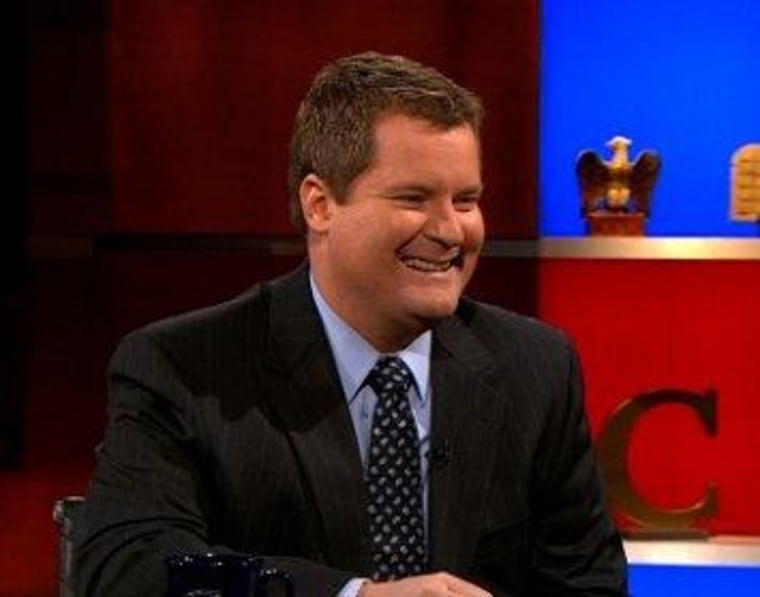Erick Erickson had a curious rant the other day about those out-of-touch Americans inside "the NYC-DC corridor" and everyone out in the real America, and how they perceive current events differently. The conservative pundit argued, for example, that most Americans are "nervous about," among other things, "the price of a gallon of milk and loaf of bread that keep going up though Ben Bernanke tells them there is no inflation."
Paul Krugman, as is his wont, wrote up an item in response, pointing out that the price of a gallon of milk and a loaf of bread have been quite steady in recent years. Krugman even included charts.
That probably would have been the end of it, except Politico's Dylan Byers got in touch with the Fox News pundit, asking about the discrepancy between his claim and the facts. Erickson responded in an email (via Simon Maloy):
"Paul uses a chart to try to disprove the reality that Americans with small kids actually experience at the grocery store.... Not everything is academic or chartable and sometimes the accuracy of the chart isn't as real to people as the perception they have that their grocery store bills are getting more expensive though their shopping habits haven't changed. [...]"Seriously, Paul's point is correct, but it is an issue of perception of people versus the reality of his chart. He can certainly go tell people milk prices haven't gone up, but good luck getting them to believe him."
This is about the point at which Erickson morphs into Stephen Colbert's on-air persona, perhaps unaware that it's satire.
It doesn't matter what is true, the argument goes, but rather, what seems true. Sure, liberals can find value in facts and accuracy, but isn't it better to have perceptions?
If we want to know whether the price of a gallon of milk has increased, we could look at the data and get a reliable answer. But why bother when we can guess, assume our conjecture is correct, and know in our gut we're right -- even if we're not?
Erickson's point to Byers seems to be that perception is reality. A Nobel laureate can tell folks the price of milk and bread has been stable, but if people don't believe the facts, the facts don't matter.
But isn't that why we have media professionals, pundits, and commentators? Not to put too fine a point on this, but I'm reasonably certain Erickson gets paid to provide information to his audience -- from his own unique perspective -- helping them make sense of current events. Americans sometimes need a hand separating fact from fiction, and they turn to journalists and news organizations they consider reliable to bring reality into focus.
Erickson is effectively saying his role as a media professional is irrelevant -- people will simply perceive truths whether they're consistent with the facts or not. Sure, Erickson could provide the public with facts, but good luck getting them to believe them.
We already know Erickson is wrong about the economy; here's hoping he's wrong about the value of empiricism, too.
